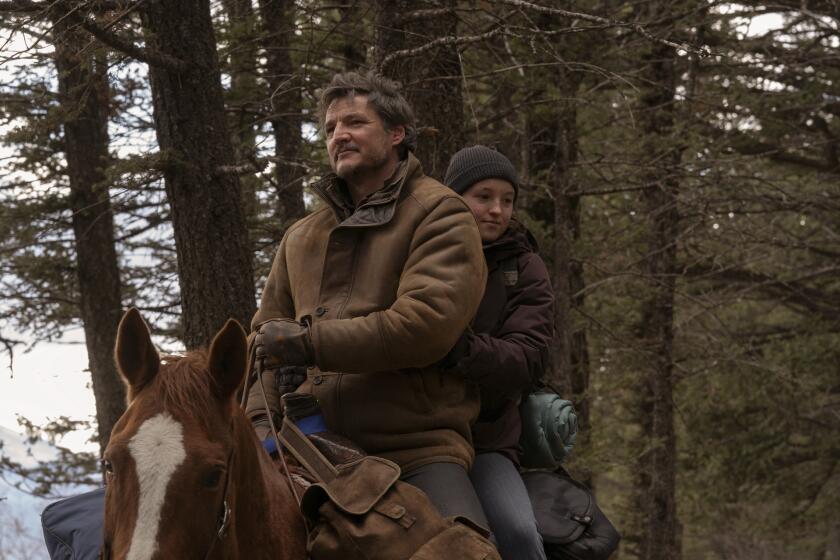Music Reviews : Kronos Quartet Plays Eclectic Program at Wadsworth
- Share via
In their usual, sophisticatedly packaged fashion, the Kronos Quartet demonstrated their ability to successfully take several different kinds of music and put them together into a consistent, avant-garde program Saturday night at Wadsworth Theatre. Included in their performance were examples of ethno-pop, minimalism, Renaissance, rock, blues and at least one established 20th-Century masterpiece.
The latter was Charles Ives Second String Quartet (1913), a last-minute substitution which became their most daring undertaking. All of the odd phrases, difficult synchronizations and humorous effects blended expertly into a thoroughly virtuosic performance.
Equally engaging was the Los Angeles premiere of Terry Riley’s “The Gift,” a collection of chant-like passages and patterns inspired by East Indian music. Riley continues to be the most pleasingly unpredictable of minimalist composers.
Unfortunately, excessive reverb, unintended distortion and other problems in the amplification system marred much of the fare.
This was most apparent in the L.A. premiere of Carlos Farinas’ graphically notated “Tatomaite” (1972), in which the ensemble made use of different-sized gongs, temple blocks, maracas and bongos, all sounding washed out in a sea of antiseptic reverberation. The Kronos’ own arrangement of the Tallis 40-Part Motet also fell short of expectations due to a prerecorded part that frequently buzzed and distorted.
Opening the program were three tonal pieces by African composers, two of them Los Angeles premieres: from Uganda, Justinian Tamusuza’s infectious folk tune setting “Mu Kkubo Ery’ Omusaalaba,” and from Sudan, Hamza El Din’s more tranquil, Arab-influenced “Escalay.” The other work by white South African Kevin Volans, “White Man Sleeps, Dance 4” (1985), proved more routine.
Two encores of intricate arrangements of rock tunes by Steven Mackey completed the program. “Foxy Lady” by Jimi Hendrix gave the ensemble a chance to ham it up while Muddy Waters’ slower, more meditative “I’m Your Hoochie Coochie Man” revealed a less brutal pop sensibility.
More to Read
The biggest entertainment stories
Get our big stories about Hollywood, film, television, music, arts, culture and more right in your inbox as soon as they publish.
You may occasionally receive promotional content from the Los Angeles Times.










